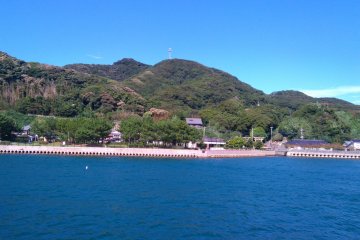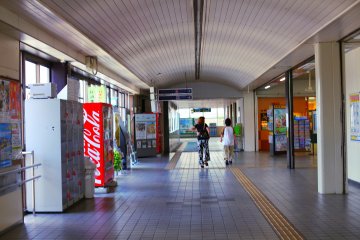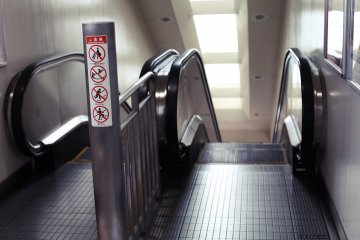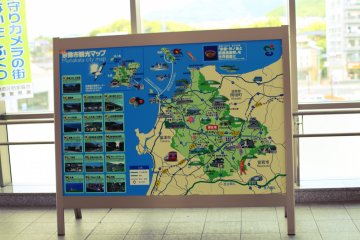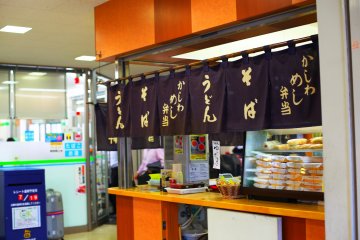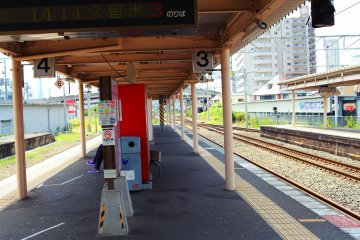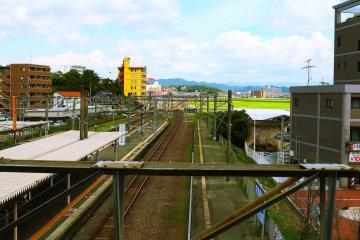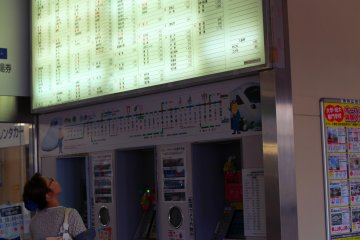JR Kyushu's Akama Station is located in Munakata, Fukuoka, and is the closest station to Tokai University Fukuoka Junior College. It is a wide and very customer friendly station—no doubt a result of the large student population. The journey from Hakata Station to Akama by limited express is around 20 minutes and there are beautiful countryside views all along the way. At Akama Station there is a large ticket office, with lots of information pamphlets and extremely helpful staff.
JR Akama Station is a major stop on the Kagoshima Main Line, providing speedy access across Fukuoka between Hakata and Kokura. The station has a variety of food stalls and restaurants from udon noodles to bakeries, meaning if you’re in a hurry you can get a quick meal on the go. The area surrounding the station is a little sparse but there is strong student atmosphere with chic cafés like Apple Ivy Tea Room and cheap eateries. The nearby onsen are definitely worth a trip if you are headed out to the station; with a thirty-minute taxi ride you can find yourself in a relaxing spa resort such as Hotel Grantia Wakamiya. I recommend the Japanese breakfast there.
This station was definitely made with customer service and convenience in mind. Within the station there are several maps showcasing the local attractions and how to get there. There are large coin lockers available so you can leave your heavy bags and go out exploring the local vicinity. Though it is a busy station, the size makes it easy to navigate and the flow of people is very calm. Though I didn’t experience rush hour, I doubt it is a difficult experience.
The station has two entrances and exits, with clear English signs telling you which exit is home to which local attractions and buildings. Though Akama may not have all perquisites of a major urban station, it is incredibly convenient. Outside there is a taxi rank, requiring no awkward phone calls: great for the non-Japanese speaking travellers. There is also a regular bus service leaving the station if you have a little further to go. The staff at the station speak very little English, but with a smattering of Japanese and hand gestures they are incredibly helpful directing you to the right platform, or exit and telling you when the next train is if you can’t read the signs. Overall this simple station is an easy experience; there is no getting lost amongst the crowds or struggling to find the right exit.




